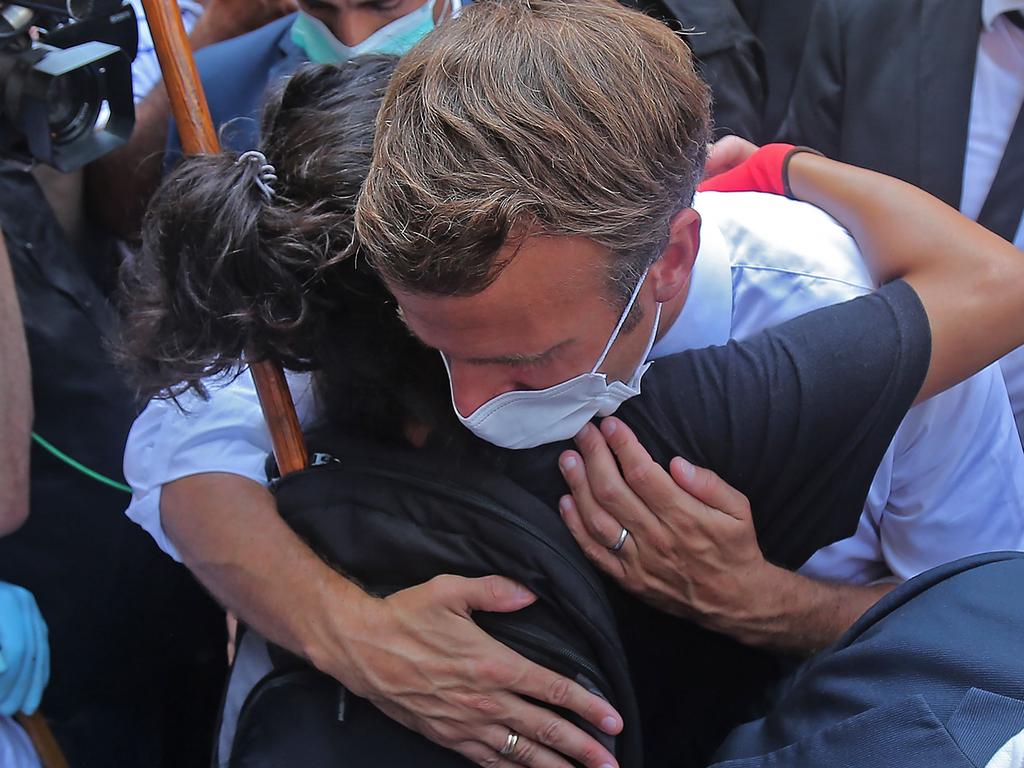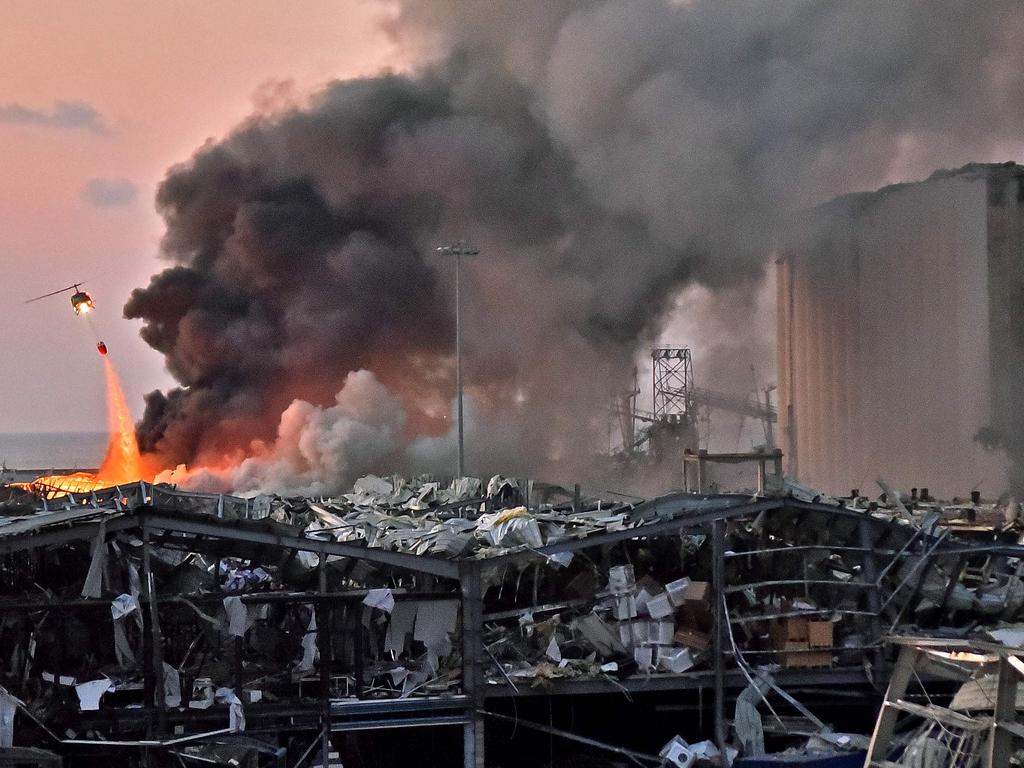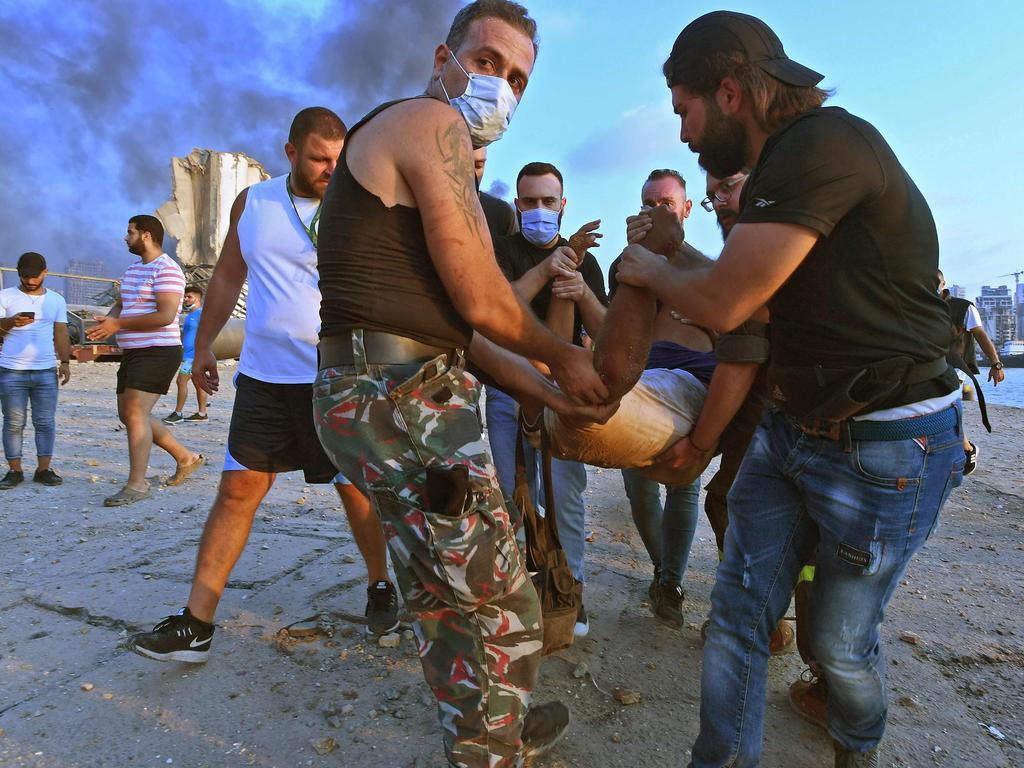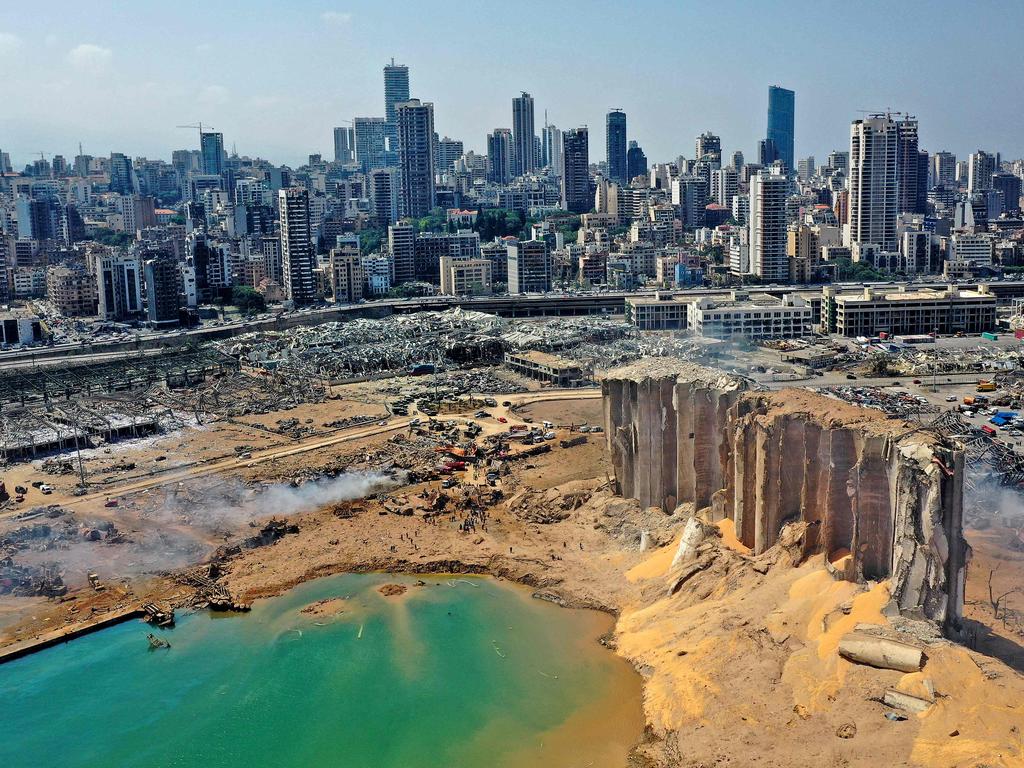Can Lebanon clean itself up after the Beirut explosion?
Rebuilding a broken city and broken system is hard work. People sweeping glass from their homes may be too busy for revolution.

Aa President Macron toured the streets of Beirut on Thursday, he must have felt a certain sense of schadenfreude, no doubt carefully hidden.
Ten days earlier the man he was here to meet, Hassan Diab, Lebanon’s prime minister, had snubbed France on Twitter, spurning Mr Macron’s offer of financial assistance made on condition of political reform.
France was offering “nothing new”, he said. Jean-Yves Le Drian, Mr Macron’s foreign minister, who had met Mr Diab in Beirut previously, had shown a “lack of knowledge of the path of government reforms”.

Yet here was Mr Macron being hailed by the crowds as a potential saviour. Some shouted at his motorcade, demanding the fall of the “regime”, a chant usually heard in Lebanon’s neighbouring dictatorships. People were now asking the former colonial power to return and decide the country’s future.
The “fall of the regime” that many people seek is directly linked not only to Tuesday’s devastating explosion but also to a wider malaise.
Lebanon has collapsed economically in the past six months, since the country defaulted on a small debt to the international banks. The decision to do so was a classic case of governmental self-delusion. The debt was small, no one would worry too much about a couple of billion euros here or there. Other countries had defaulted on larger sums.
But no country quite so dysfunctional as Lebanon, with a massively overvalued exchange rate, at a time of worldwide contraction on markets and an impending pandemic, had defaulted quite so blithely.
As the shockwaves ran through the international financial system and the domestic banks, the supply of foreign currency dried up, along with imports. It was not just luxury cars that stopped coming but basics, from instant coffee to fuel.
The banks banned customers from withdrawing cash from their foreign currency accounts, which many people hold, apart from a small weekly allowance. Yet just as blithely as the government, the banks refused to declare themselves bankrupt or force the government to impose currency controls, or even explain how this was legally possible.
For years ordinary Lebanese had accused the governing and banking elites of being thieves. Now it seemed to be coming true. The banks were refusing ordinary people their deposits but the directors and their politician friends were transferring billions of dollars to bank accounts abroad without anyone trying to stop them.
That sense of blithe disregard was being expressed in a very different part of the country’s governance. In the port, workers were asking how it could be safe to store 2,750 tonnes of ammonium nitrate packed high in warehouses in the summer heat, year after year.
No matter, the bosses said. Everything would be all right. Someone would sort it out.
Perhaps it would be the legal system dealing with arguments over ownership, or the police, army and other bodies responsible for ensuring public security. Maybe it would be the port managers, or politicians from the various factions that “owned” each of these supposedly public services – someone would sort it out eventually, they said.
That didn’t work any more than the assurances that Lebanon’s wonky economics would survive a government debt default.
Almost everyone agrees that at the heart of Lebanon’s problems is the power-sharing agreement that ended the civil war in 1990 and, to its credit, oversaw 30 years of peace, including 20 years of economic reconstruction and growth.
Each faction, religious and political, got its bite of the cherry, a say in government and some part of the economy to run – and from which to take profits. The leadership of each faction benefited, the economy boomed and everyone was happy.
But when global financial crisis struck, along with wars in neighbouring Syria and Iraq, the financial tide went out. As the poor and middle classes lost their jobs, they noticed that the billionaire class remained billionaires. These were the same people who led the government, the same people, in fact, who had waged the war in the first place.
Nabih Berri, whose Shia sect Amal party saw the greatest military advance in the war, is speaker of parliament and a billionaire, according to WikiLeaks. Saad Hariri, whose father Rafik was Lebanon’s most influential Sunni politician and one of its richest men before he was assassinated in 2005, followed him as prime minister.
Gebran Bassil, leader of Lebanon’s biggest Christian party, seemed unaccountably wealthy for a man whose energy ministry was unable to provide 24-hour electricity. Maybe his father-in-law, Lebanon’s president, could help?
Or maybe, the protesters who took to the streets from October said, they could just get lost? They said that it was as if Lebanon’s rulers had found a way to stop fighting each other – by ganging up on the people instead.
But these men are nothing if not resilient. Mr Diab, widely seen as Hezbollah’s place-man as prime minister, was only speaking for the ruling classes when he told Mr Macron where, metaphorically, to stick his aid-and-reform package.
They know that the sectarian card remains powerful. There are few parties for which people can vote other than those that represent their religion, which remains a powerful force not just in the hills of Lebanon’s interior but in Beirut too.
During the last elections in 2018, it was not uncommon to meet party workers campaigning for their sectarian leaders while at the same time saying they privately hoped they would lose.
Logic would suggest that a disaster of Tuesday’s magnitude would finish off Lebanon’s staggering, weakened, unfeasible political infrastructure.
In fact, it may yet give it one more breath of life. People sweeping up glass and trying to rebuild their houses have little time for revolution.
Aid money, sent in dollars and euros, will keep the money-go-round running for a few more months. The politicians now have a good excuse for the chaos.
Mr Macron is aware of this. Mr Le Drian was quick to say on Wednesday that assistance, even emergency aid, must still be accompanied by political reform.
Whether the West has the energy to enforce that, faced with pictures of Lebanese camped out in the shells of their homes, is another matter.
The Times







To join the conversation, please log in. Don't have an account? Register
Join the conversation, you are commenting as Logout